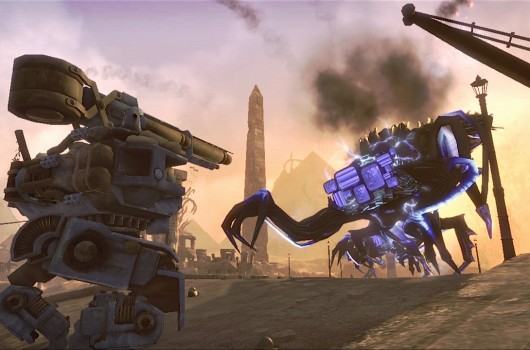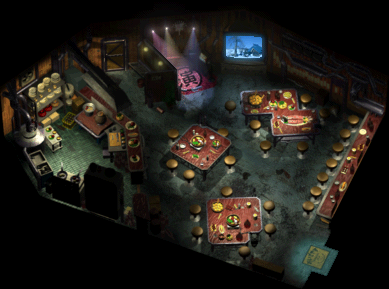This post has not been edited by the GamesBeat staff. Opinions by GamesBeat community writers do not necessarily reflect those of the staff.
Last Saturday, I got an email from my good friend, Player 1. It was a short and to the point: P1 wanted me (hereafter referred to as "Player 2") and our mutual buddies, Players 3 and 4, to set aside time in our schedules to finally finish the co-op campaign we'd all wanted to knock off our lists for some time. The game was Double Fine's Iron Brigade (formerly known as Trenched), an absolutely delightful tower-defense/third-person shooter.
The four of us purchased this game on release day fully intending to complete the campaign together. All four of us. No man left behind.
Trenched was released June 22, 2011. When I got this email from Player 1, well over a year later, we were a little over halfway through the campaign.
We're not the only group of friends who've run into this situation. The rise of online multiplayer and AAA titles that feature entirely cooperative campaigns just highlights how monstrously difficult it is to coordinate four adults living four busy adult lives in four seperate cities scattered across the country. It can be done — and I've got tips to help make it happen — but the process can be an adventure in itself.
In his email, Player 1 admitted he was booked both Tuesday and Wednesday evenings, but free most other nights. Player 4 had theater rehearsals every weekday evening, but good on weekends. Player 3 and his wife needed to help family move house on Friday and Saturday. Just as well, because I had two separate parties to go to on Saturday night.
So, by process of elimination, we all quickly made a date for Sunday. I made sure to text everyone that morning to coordinate times, and I sat down in front of the Xbox after dinner to boot up the game. I'd commited to 2-4 solid hours so we could finish Iron Brigade off.
Then I got a text from Player 4. "I brought my Xbox to my girlfriend's, but she doesn't have an ethernet cable. I think we're boned, guys."
Classic Player 4.
Iron Brigade went by the wayside. The rest of us played a few rounds of Mass Effect 3 multi and called it a night. As I drifted off in bed, I reflected where our grand plan went so horribly wrong, and what we should've done differently.
1. Set aside a regular evening
A one-off session had to work around everybody's schedule. That's not a problem if it becomes a regular part of everyone's schedule, like poker night…something everyone schedule other things around. And the key here is regular. If Friday is game night, then it's much less tempting to throw that out on a whim because Jimmy Co-Worker wants to hit up a bar after work.
2. Have an alt ready
Having a group of three guys with whom you regularly game sounds like an ideal scenario. If they're all available, you've got a full team: Marcus, Dom, Baird, and Cole…Leonardo, Donatello, Michelangelo, and Raphael…Spengler, Venkman, Stantz, and Zeddemore. But check out those gangs a four, and you might recall at least one of them can be a little flakey at times. And it so happens that when my bros and I get to shooting bad guys,my wife sits nearby with a "Player 5" symbol floating above her head.
She usually refuses to substitute herself for one of the guys in campaign modes (an act she described as a "bro-trayal"), but if someone (coughPlayer4cough) pulls a no-show, we've got a possible replacement. A number of excellent games offer split-screen and online functionality simultaneously — Dungeon Defenders, Gears of War, Left 4 Dead, and the upcoming Borderlands 2, for example (check out Co-Optimus for an exhaustive list).
If you're lucky enough to have a player pool to draw from, even better. Set down rules that say a group can proceed once you've got a quorum, and get to slaughtering alien scum.
3. Dedicate yourself to smaller fellowships.
It's a lot easier to coordinate two schedules than four. My best co-op experiences featured just one dedicated partner, allowing for others to join us (on a purely platonic basis). I played Borderlands with Player 1, and occasionally Player 4 would join. I spent Resident Evil 5 and Dungeon Defenders entirely with my wife, and never defended a single dungeon without her by my side.
Instead of co-ordinating the entire band of bros, pair off. I've co-opped games exclusively with each of my fellow Players, so nobody ever felt left out and we all got our gaming done.
So it's not always easy to be inclusive and make steady progress at the same time, but these strategies can help. I'd love to hear what sort of scheduling conflicts you run into and what solutions you've come up with…and I'll let you know if we ever finish Trenched.
This article originally appeared on TheLostLevels.



